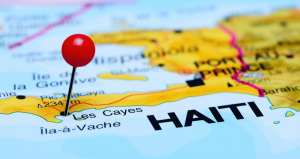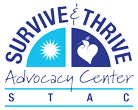I had the pleasure of working with the Survive and Thrive Advocacy Center (STAC) through an internship during the summer of 2023. I am gratified as I had the opportunity to participate in STACPRO where I finished a human trafficking training course for businesses and other establishments, and where I gained valuable knowledge. During the training, I learned many things that equipped me with the necessary skills to spot human trafficking.
Knowledge is Power
Did you know that the term “human trafficking” refers to both sex trafficking and labor trafficking? Human trafficking does not require movement or national, state, or local border crossing. This crime is invisible to the eye – that is, it happens in plain sight – and we can miss it even when it is right in front of us. I want to spread awareness to my fellow Rattlers and other institutions since this can affect everybody.
Some common examples of people who are trafficked in Leon County include LGBTQIA+ populations, farmworkers, domestic violence victims, middle school, high school, and college students, people who work in construction or landscaping, and people who work at restaurants and hotels as housekeeping and janitorial staff. Traffickers can be business owners, pimps, labor subcontractors, neighbors or friends, professionals, and family.
These perpetrators groom victims, promising a respectable job, relationship, or a promising future, meeting basic needs, including shelter and food, and pretend to care for the victim or victim’s family. This affects people from countries like Haiti, Mexico, and the United States.
Human Trafficking in Haiti
My father is from the island of La Gonâve, Haiti, located west-northwest of Port-au-Prince in the Gulf of Gonâve. It is the largest of the Hispaniola satellite islands.

I choose to discuss Haiti as I am a son of an immigrant who came here to make the best of his opportunity. I grew up seeing how he struggled to provide as a migrant worker in the United States. I am aware of the false hopes of equal opportunity being an immigrant to the U.S. with limited knowledge. Most of Haiti’s trafficking cases involve children in forced labor and sex trafficking in domestic service, commonly called restavek situations, in which children are often physically abused, receive no payment for services rendered, and have significantly lower school enrollment rates.
Risk Factors for Human Trafficking
I grew up in South Florida, one of the biggest melting pots in the United States. I had the pleasure of becoming culturally competent at an early age and having many friends of different ethnicities of Latino descent. I have seen both the struggles and the hopes of many who come to Florida to find a better way of life.
Groups considered most at risk for trafficking are those in Central America, South America, United States, and Mexico. They can include unaccompanied children, Indigenous persons, persons with mental and physical disabilities, asylum seekers and migrants, IDPs, LGBTQI+ individuals, informal sector workers, and children in gang-controlled territories.
These groups commonly experienced risk factors, including marginalization, intra-family and social violence, crime, and a need to migrate within the country or abroad to find employment. Traffickers recruit and exploit Mexican women and children, and to a lesser extent, men, in sex trafficking in Mexico and the United States through false promises of employment, deceptive romantic relationships, or extortion. Many trafficking cases occur among family, intimate partners, and acquaintances on social media or through employment-related traps.
Working at Twin Oaks Academy
I am honored to have worked at Twin Oaks Academy, a youth shelter in Greenville, Florida. Twin Oaks Academy expanded my knowledge of cultural competence by providing me with the experiences of working with children to teens who have endured abandonment, human trafficking, and other circumstances. Twin Oaks Academy’s sole mission was to assist these children with resources to aid in survival in the United States and hopefully reunite most of them with family members in the United States.
How You Can Get Involved
Human trafficking is a grave and complex matter that advances to infect humanity internationally. If you have not done so by now, please complete the STACPRO training so you can know how to spot human trafficking in your area. This training, as well as my internship with STAC, has helped tremendously, and I plan to teach the knowledge I learned to my future offspring, and you should, too. Click here to sign up for this FREE training today.
The National Human Trafficking Hotline is 888-373-7888 and is open 24 hours, seven days a week. Curious about more human trafficking information? Please visit the website at https://humantraffickinghotline.org/en
I encourage you to remember that human trafficking refers to both sex trafficking and labor trafficking, which is worth noting when we go outside each day. It is a multi-billion-dollar industry that victimizes the weaknesses of children, women, and men, causing infliction of devastating physical, emotional, and psychological scars. Understanding the complexity of human trafficking and promoting awareness about its existence is crucial to preventing this flagrant crime and defending the rights and dignity of every individual.
Marcus Ineus
Alumnus, Florida Agricultural and Mechanical University Class and Certified STACPRO Participant







